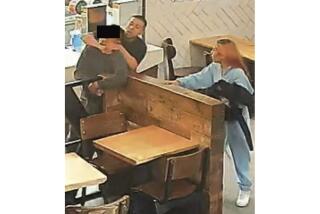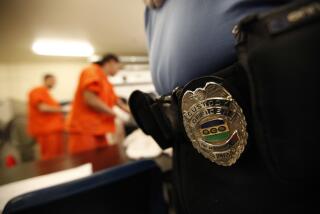Sweatshop Operators Indicted
- Share via
A federal grand jury Thursday returned a 23-count indictment charging the operators of a now-notorious El Monte garment sweatshop with kidnaping and enslaving their Thai immigrant workers, allegations that could carry a maximum penalty of life imprisonment.
The 31-page indictment significantly ratcheted up the charges and possible penalties against the operators, all Thai nationals.
Until Thursday, they had been accused of harboring and concealing illegal immigrants and faced up to five years in prison and $250,000 fines on each charge.
“These allegations are shocking and show that slavery is not a thing of the past,” said Deval L. Patrick, assistant attorney general for civil rights, in a statement. “[The] indictment reflects this office’s and federal law enforcement’s commitment to bring those responsible for the El Monte slave labor garment operation to justice.”
Ten Thai nationals--including one newly named defendant, Chavalit Manasurangkun--are accused of conspiring to recruit garment workers in Thailand, provide them with false documents to enter the United States as tourists, and holding them against their will in the gated El Monte compound ringed with razor wire.
Eight of the alleged operators were arrested Aug. 2 when authorities raided the factory and freed 72 Thai nationals allegedly held in involuntary servitude.
Federal and state officials have since filed lawsuits seeking $5 million in back wages due the former workers, who are serving as witnesses in the criminal case.
State authorities also have imposed fines on a number of unlicensed Los Angeles-area garment manufacturers that subcontracted with sewing firms linked to the El Monte factory.
Charged in the new indictment were Suni Manasurangkun, 65, the alleged ringleader, four of her sons, two women believed to be her daughters-in-law and two alleged guards.
All are in custody except for sons Chavalit and Sukit, who are believed to be in hiding in Thailand.
In adding kidnaping charges, prosecutors pursued a non-traditional theory--”kidnaping by trickery,” said Michael J. Gennaco, the assistant U.S. attorney overseeing the prosecution.
Authorities accused the sweatshop operators of misleading workers about conditions at the facility, which was situated in a converted apartment complex in a residential district.
More to Read
Sign up for Essential California
The most important California stories and recommendations in your inbox every morning.
You may occasionally receive promotional content from the Los Angeles Times.













